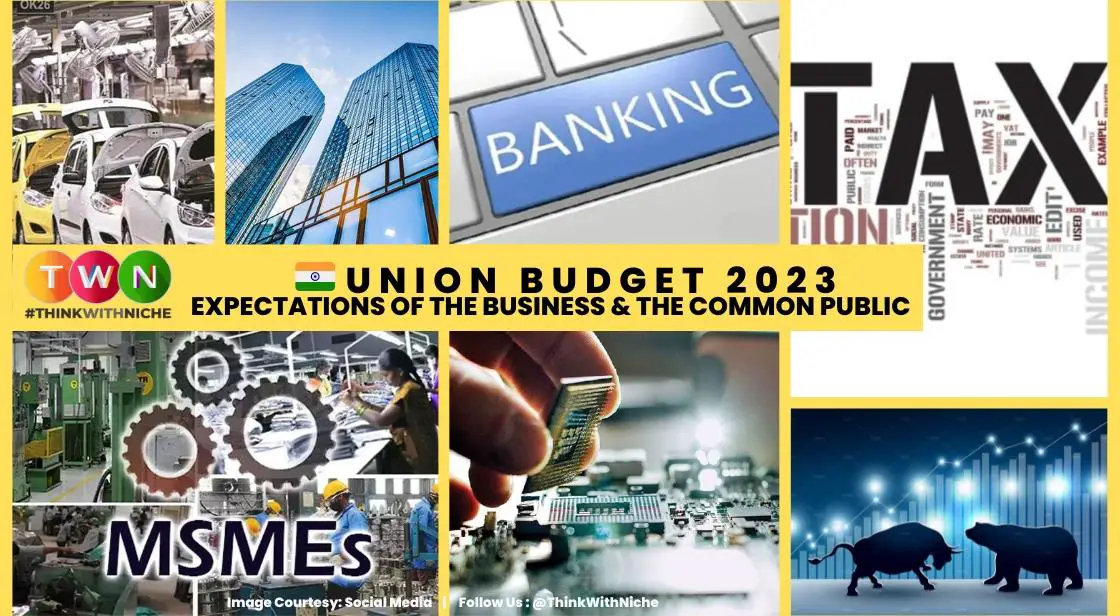The Union Budget will be presented by Finance Minister Nirmala Sitharaman on February 1. For the fifth time, Sitharaman will propose the federal budget. It took the Finance Minister of 2022 nearly 1.5 hours to present the budget. Her 2 hours and 40 minutes 2021 budget address set a record for length in Indian history.
As the Union Budget for FY 2023–2024 approaches, the government is anticipated to pay attention to a number of significant topics. Undoubtedly, one of the areas of importance will be the expansion and development of the economy.
The upcoming Union Budget will be the last full-year budget from the Modi government before the upcoming Lok Sabha elections, which are anticipated to take place in early 2024. The primary objective of the finance minister, Nirmala Sitharaman, expected to sustain future growth while reducing the budget deficit and inflation.
Union Budget 2023: Expectations of the Business and the Common Public
- Income Tax Slabs
With the exception of a new optional tax system, the salaried class in India hasn't traditionally had much to rejoice about in the recent budgets of 2020. Individual taxpayers thus expect the next budget to offer some significant gains. Of particular note, economists contend that the Government has to consider raising the top tax rate threshold from Rs. 10 lahks to Rs. The highest tax rate can also be lowered from 30% to 25% to align it with corporate rates. This would presumably boost the common public's purchasing power populace and enable the country's demand for products and services to rise.
- Banking Industry
Because they will be the primary sources of funding for all sectors to cover the government's significant capital expenditures, banks have received a considerable capital infusion. Consequently, the banking sector is not aggressively looking for support in the form of more money. But the sector is anxiously anticipating the government's plans for the privatization of public sector banks (PSBs). Experts predict that the quick privatization of PSBs would boost an increase in financial inclusion and operational efficiency.
- MSME industry
Because 95% of Indian firms are micro-scale enterprises, the government must give boosting funding to MSMEs and startups as well as simplify taxation for them a high priority. Aiming to reverse the slump it has seen over the previous two years and experience robust growth, the MSME sector, which has historically been the backbone of the Indian economy, has begun the new year with high expectations. The implementation of policies that would make it simpler for MSMEs to conduct business should be the objective of the budget for 2023.
Furthermore, it is imperative that policies be put into place to reduce input costs, boost liquidity, and enhance financial inclusion by providing small companies with access to reasonably priced financial products. To further promote small firms and empower entrepreneurs, support mechanisms such as startup-friendly laws to allow increased expenditure on innovation and tax relaxations should be implemented.
- Stock markets
Equities markets throughout the world have seen turmoil recently. Even in the face of this uncertainty, the Indian equity market has remained an anomaly, beating both established and new competitors. Despite analysts' worries that high valuations may limit the Indian stock market in 2023, the Budget might support the market's rising momentum.
How? Market analysts believe that the elimination of the long-term capital gains tax (LTCG) would be the answer. Currently, if stock market gains are kept for a period longer than a year, they are subject to a 10% tax. However, stock market participants want this tax repealed. Notably, analysts believe that taking such action would significantly strengthen the markets and increase participation.
- Real Estate Sector
Future prospects for the real estate industry, particularly the residential real estate market, seem bright after a protracted period of uncertainty. However, escalating inflation and rising loan rates have significantly lowered homebuyers' purchasing power. Real estate sector experts believe that the tax-deductible ceiling for house loan interest payments can be increased from Rs 2 lakh to Rs 5 lakh in order to offset this. A separate Section 80 C alternative for principal repayment of house loans can also be offered for Rs 4 lakh, analysts claim.
Important Tags:
union budget for fy 2023 2024, upcoming union budget, expectations of the business and common public







